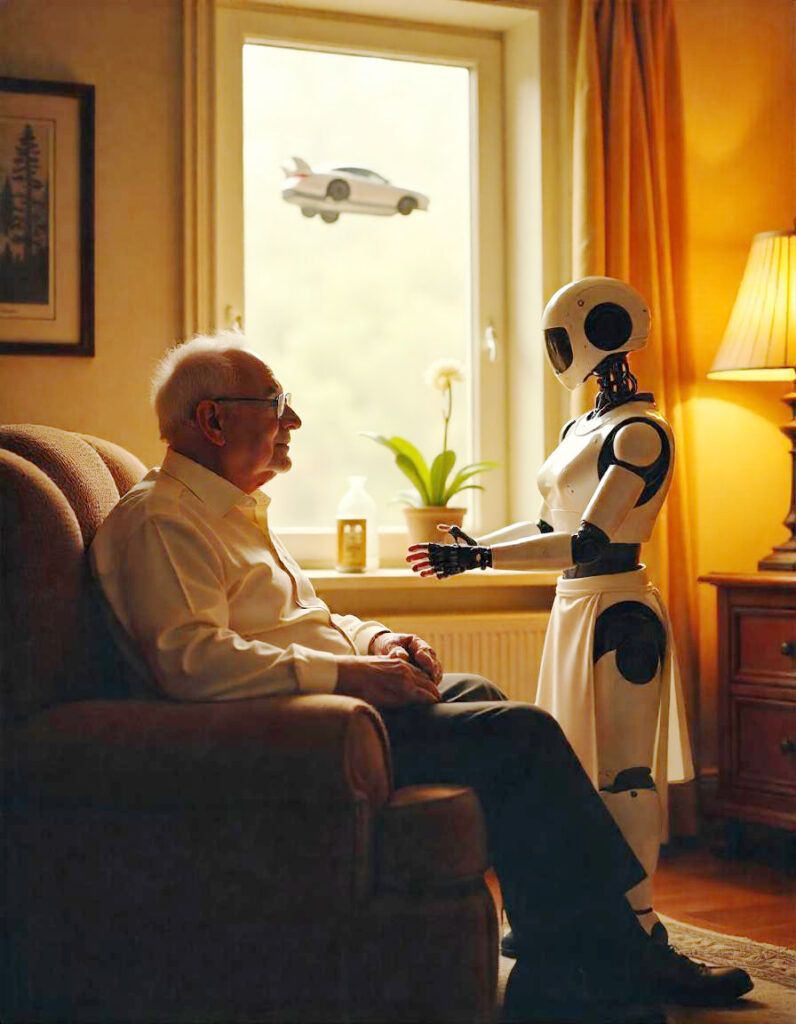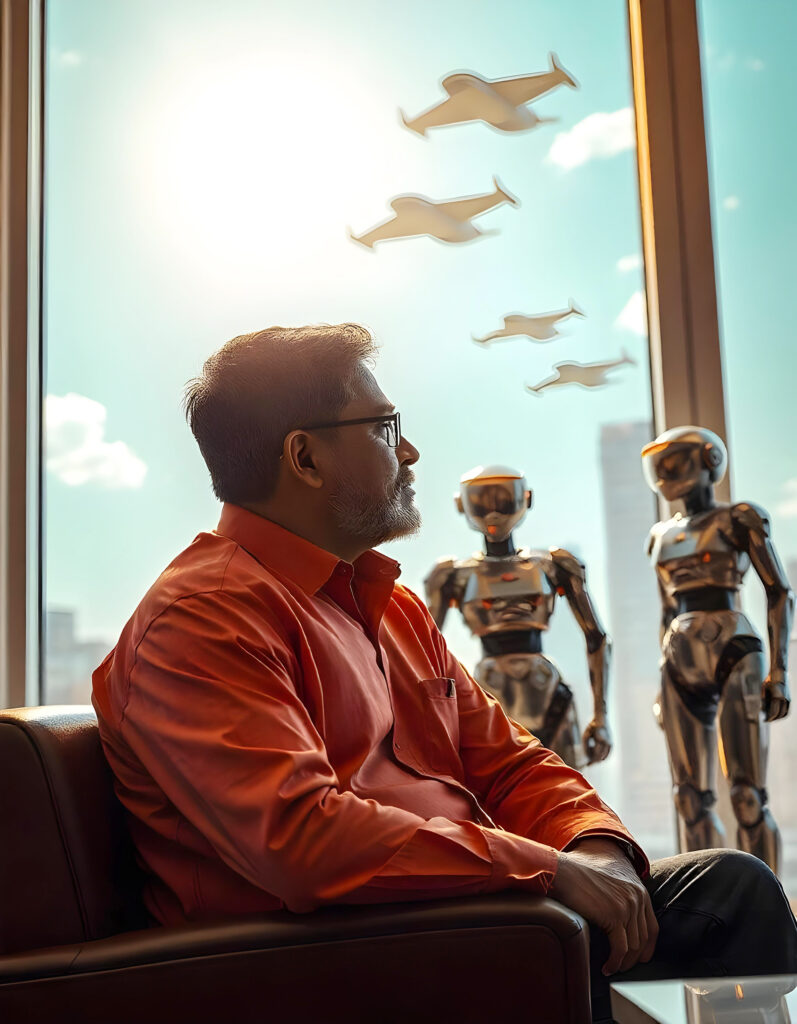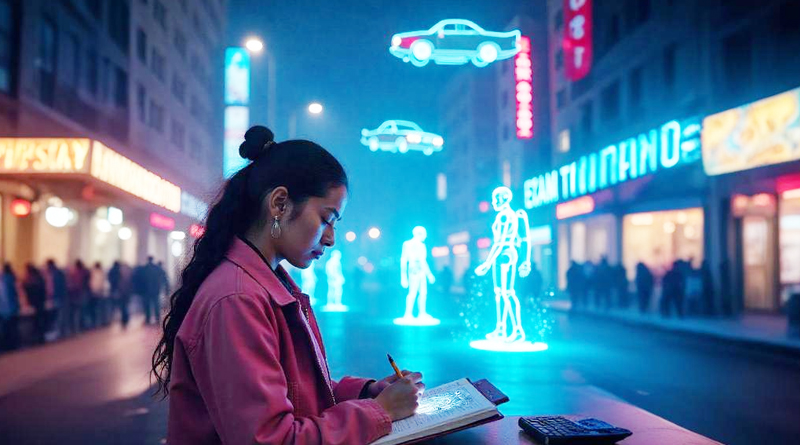The First 25 Years of the 21st Century: A World Reimagined
By: Maria Alejandra Pulgar
As we get ready to begin the second quarter of the 21st century, it is a great opportunity to review the state of the world and analyze if it has achieved the level of progress that was foreseen, by an era of plenty of technological innovations and globalized interactions.
The dawn of the 21st century was marked by a wave of optimism and anticipation. Movies like “Back to the Future” and series like “The Jetsons” painted a picture of a future filled with flying cars, robot maids, and teleportation. As the years passed and we approach the year 2025, reality began to diverge from these fantastic visions. Nonetheless, these first 25 years since the turn of the millennium have been a period of extraordinary change and innovation.
 Flying cars? Not yet!
Flying cars? Not yet!
One of the most significant developments of this quarter of the century has been the rise of the digital age. The internet, once a niche technology, has become an integral part of daily life, revolutionizing communication, commerce, and culture. The “Internet of Things” (IoT), where ordinary objects interconnect with our phones and computers to detect failures, suggest updates or report their status, gives us more time to devote to more elevated tasks, while handling transactions or regular operations with minimal human intervention.
Social media platforms have connected people across the globe, fostering both unity and division. While these platforms have empowered individuals and fueled social movements, they have also been exploited to spread misinformation and sow discord.
We have electric cars, however their production and use is not yet as massive as it was expected by this time of the century. Many countries lack infrastructure to use them and the interests of the oil industry still make regular cars the standard worldwide.
Smartphones and tablets, as well as cellphone coverage and speed worldwide, have become cheaper and broadly used, transforming the way we interact with the world. And most recent of all, Artificial intelligence, once an expensive technology used for specific goals, has made significant strides broadening its usage and becoming accessible, with applications ranging from self-driving cars to medical diagnosis apps. However, the rapid pace of technological progress has raised concerns about job displacement, privacy, and the ethical implications of AI.
Where do we go from here?
On the other hand, along with the progress, over these years there have been extraordinary challenges that impacted humanity forever. The wars in Iraq, Afghanistan, Syria, Israel, Gaza, Yemen, Lebanon, and the worldwide COVID-19 pandemic of 2020, have left millions of people displaced, affected and scarred for life, not only for the material losses but also for the psychological and social impact of those events.
At the turn of the century, in 2001, the 9/11 terrorist attacks led to the War on Terror, a conflict that has spanned decades and claimed countless lives. The Great Recession of 2008 plunged the global economy into crisis, causing widespread hardship and unemployment. More recently, the pandemic has had a devastating impact on public health and economies worldwide.
Despite these challenges, humanity has shown resilience and a capacity for innovation. The development of vaccines to combat COVID-19 is a testament to the power of science and international cooperation. Renewable energy sources have become increasingly affordable and accessible, offering hope for a more sustainable future.
Caring for the Earth has become a trend and a worldwide concern; To try to improve the progress on these matters around the world specially at the less developed countries, the U.N. created the 2030 Sustainable Development Goals (SDGs).
While significant strides have been made in certain areas, such as poverty reduction and access to education, many challenges remain. Climate change, inequality, and political instability continue to threaten our progress towards the SDGs. Some countries have made substantial progress, others are lagging. Factors such as geopolitical tensions, economic disparities, and climate change pose significant obstacles. To achieve the 2030 Goals, we need to accelerate efforts, strengthen international cooperation, and mobilize resources; we are a mere five years away from the finish line.
 Looking ahead, the future holds both promise and peril. The next 25 years could see even more rapid technological advancements, with the potential to transform society into ways we can only imagine. However, these advancements must be guided by ethical principles and used to address global challenges such as climate change, poverty, and inequality.
Looking ahead, the future holds both promise and peril. The next 25 years could see even more rapid technological advancements, with the potential to transform society into ways we can only imagine. However, these advancements must be guided by ethical principles and used to address global challenges such as climate change, poverty, and inequality.
Good leadership worldwide, with high moral, justice and social responsibility values could have paved the way to achieve those goals.
As we enter the second quarter of the 21st century, let’s try as individuals to make our part and resolve to build a better future for ourselves and for generations to come. Let us work together to make every day small changes to create a world that is just, equitable, and sustainable.
May the spirit of hope and cooperation guide us in the years to come. Our grandchildren will recognize and appreciate our efforts.
Happy New Year 2025!!!

